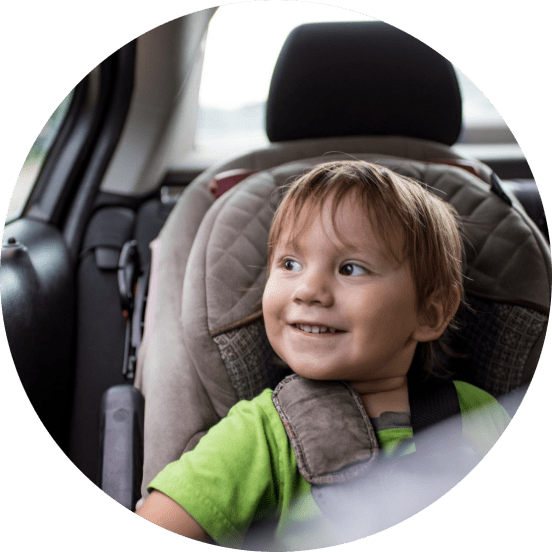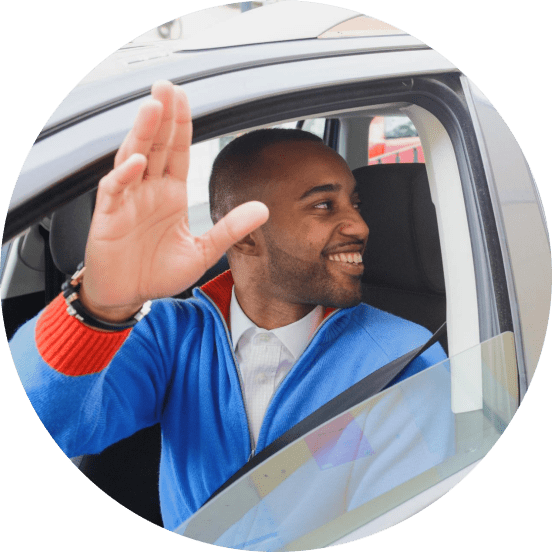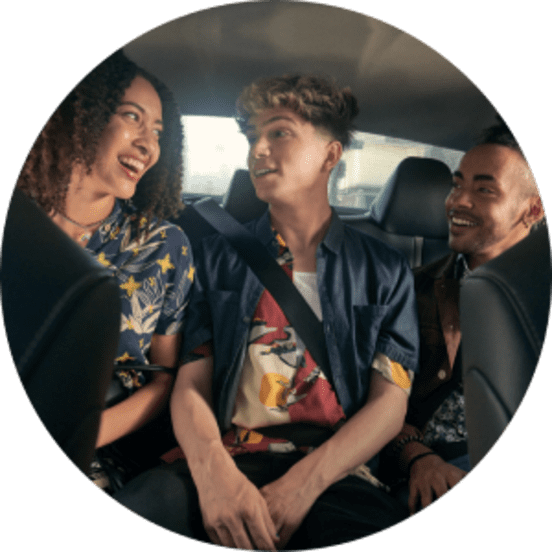Follow the law
This section is based on laws and regulations that everyone must follow
For example, using the Uber Marketplace Platform to commit any crime—such as transporting drugs, money laundering, committing drug or human trafficking, or sexually exploiting children—or to violate any other law is strictly prohibited.
For riders and Uber Eats users, let your driver or delivery person handle the driving, and don’t ask them to speed or to make illegal stops, dropoffs, or maneuvers.
Service animals and assistive devices
It is against the law to deny a ride to a rider with a service animal or assistive device (a wheelchair or crutches, for example) because of the service animal or the assistive device. In keeping with our policy, riders are allowed to transport assistive devices and animals, whether pets or service animals, pursuant to the terms and limitations of the applicable law.
Tips for drivers
By law, you can’t refuse a trip because a rider is travelling with a service animal or assistive devices. Knowingly refusing a rider a trip because of their service animal or assistive devices will result in losing access to the Uber Marketplace Platform.
Tips for riders
Your driver can’t refuse to transport you because you’re riding with a service animal or assistive devices. If you're riding with an animal that's not a service animal, it's good etiquette to contact your driver and let them know that you’re travelling with a pet. Drivers are free to choose whether to transport pets that aren’t service animals.
Car seats
Drivers and riders should comply with applicable laws when traveling with infants and small children. Where the use of a car seat is required by law, it’s the rider’s responsibility to provide and fit a suitable car seat, unless our local guidelines, terms, or other policies say otherwise. Children age 12 and under should travel in the back seat. If a child does not appear to be within the height and weight safety requirements for the car seat, or if a driver otherwise feels that the child cannot be safely transported in the seat, the driver can cancel the ride.
Riders and their guests, as well as drivers and delivery people, are prohibited from carrying firearms while using the Uber Marketplace Platform, to the extent permitted by applicable law.
Fraud
Deception can weaken trust and also be dangerous. Intentionally falsifying information or assuming someone else’s identity isn’t allowed. It is important to provide accurate information when reporting incidents, creating and accessing your Uber accounts, disputing charges or fees, and requesting credits.
Intellectual property guidelines
Never use Uber’s trademark or intellectual property without permission. Drivers and delivery people should also return Uber-branded items to Uber if they lose access to the platform. The use of unauthorized or third-party items—such as lights, placards, signs, or similar items bearing Uber’s name or trademark—may confuse riders or Uber Eats users.
Drugs and alcohol
Drug use and open containers of alcohol are never allowed while using the Uber Marketplace Platform.
Tips for riders
Never bring illegal drugs or open containers of alcohol into a car. If you have reason to believe your driver may be under the influence of drugs or alcohol, ask the driver to end the trip immediately. Then exit the vehicle and call 911. Once you have left the vehicle, please also report your experience to Uber.
Tips for drivers and delivery people
By law, you cannot drive or bike while intoxicated. If a rider is too drunk or rowdy, you have the right to decline the trip for their own safety.
Tips for bike and scooter riders
Never ride while under the influence of alcohol, drugs, or any other substance that impairs your ability to safely operate a bike or scooter.
Go to more Community Guidelines
About






